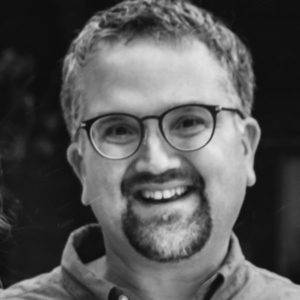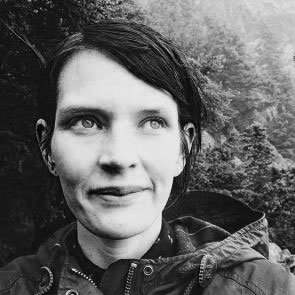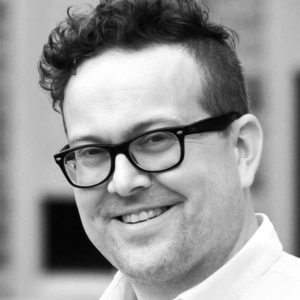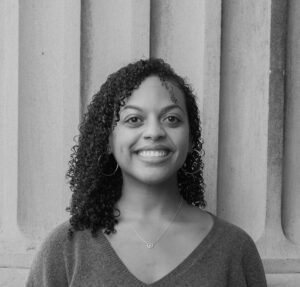About
The Maintainers is a global research and practice network interested in the concepts of maintenance, infrastructure, repair, and the myriad forms of labor and expertise that sustain our human-built world. Our members come from a variety of backgrounds, including engineers, business leaders, academic historians, social scientists, government, non-profit agencies, artists, activists, coders, and more.
Our Mission and Vision
Through collaborative efforts across an interwoven network of communities, we pursue our mission of maintaining self and society through reflection, research, and advocacy in the hopes of achieving a more caring and well-maintained world.
Maintainers Leadership and Operations Team
Maintainers Founding Leadership Team
Maintainers Advisors and Movement Builders
-
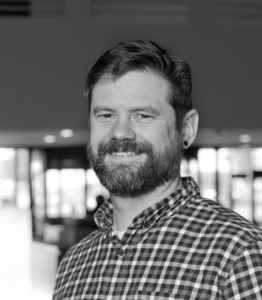
Nathan Proctor
Advisory Committee -
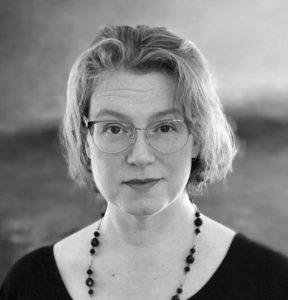
Bethany Nowviskie
Advisory Committee -

Sam Bennett
Maintainers Movement Builder, Fellow 2022 -

Leila D. Behjat
Maintainers Movement Builder, Fellow 2022 -

Rheanna Chen
Maintainers Movement Builder, Fellow 2022 -
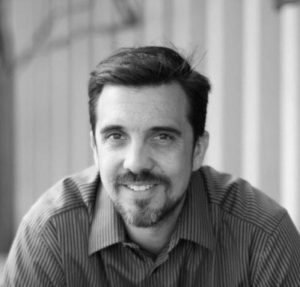
Tona Rodriguez-Nikl
Maintainers Movement Builder, Fellow 2022 -
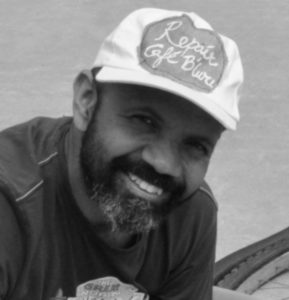
Himadri Das
Maintainers Movement Builder, Summer Fellow 2021 -
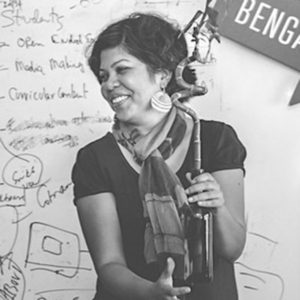
Purna Sarkar
Maintainers Movement Builder, Summer Fellow 2021 -
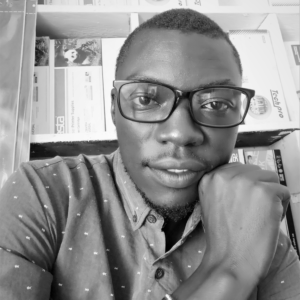
Mathew Lubari
Maintainers Movement Builder, Fellow 2023 "Maintenance Cultures" -
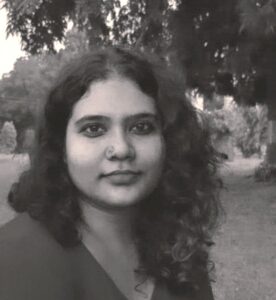
Himani Kulkarni
Maintainers Movement Builder, Fellow 2023 "Maintaining Public Health" -

Sarah Sao Mai Habib
Maintainers Movement Builder, Summer Fellow 2021 -

Linda McIntyre
Maintainers Movement Builder, Summer Fellow 2021
With acknowledgement to our fiscal sponsor Educopia, former advisory committee members Camille Acey and Guru Madhavan, and community facilitator Devan Olson.
Code of Engagement/Practice
Our mission and values outline our approach to building a caring and well-maintained world, and serve to inform our activities as a network. Our Code of Engagement describes how we put our values into practice. Please note this is a work in progress, subject to updates based on our experience as well as feedback from partners and community members.
Partnerships and collaborations will work best when:
- Work/activities align with the mission, vision, and values of The Maintainers.
- We have open communication about capacity, and set realistic goals in terms of what we can accomplish together in a given timeframe.
- We set clear and explicit expectations about what each partner is responsible for and we determine our system for mutual accountability.
- We co-create a culture that fosters co-learning, humility, curiosity and mutual respect.
- We are all vigilant about oppressive systems at work in the dynamic – sexism, racism, ableism, classism – and we have a shared investment in correcting words and actions to avoid future harm.
- We share mistakes, failures, and successes. Credit and accountability is shared.
Meetings will work best when all parties:
- Recognize that oppressive systems may impact how we are in relationship to each other. Power dynamics related to age, credentials, gender, race, and ableism all have very real, daily impacts on the lives of human beings.
- Recognize every individual’s lived experience, not merely named expertise.
- Establish general objectives as well as the meeting’s purpose, duration, and structure before the meeting. This helps everyone employ our time together effectively. Examples include a potential partnership, prospective research project, maintenance community check-in, funding opportunity, a “get to know you” meeting, and so on.
- Refrain from interrupting one another, as well as providing equitable opportunities for everyone to participate. The meeting should not be any single person’s platform.
- Approach disagreement with curiosity – criticism or disagreement should include a question or an alternative suggestion (“yes, and” – not “yes, but”).
- Acknowledge people’s ideas – do not simply rephase or build on someone’s idea without acknowledging them.
- Commit to think of next steps at the end of the meeting, or define asynchronous tasks or responsibilities.
Events will work best when all parties:
- Intentionally include a range of lived experiences and identities.
- Act in a respectful manner, and demonstrate courtesy and grace in words and actions.
- Prioritize accessibility.
- Clarify expectations for speakers and attendees regarding ways to contribute to the conversation, when to mute and unmute, how questions will be received and prioritized, the types of harmful behaviors that will not be permitted in the virtual or physical space, and the accountability measures in place to monitor for those behaviors.
- We do not tolerate harassment of conference participants in any form. Our events are dedicated to providing a harassment-free experience for everyone, regardless of gender, gender identity and expression, age, sexual orientation, disability, physical appearance, body size, race, ethnicity, religion (or lack thereof), or technology choices.
The Values that sustain us:
Care | Societies must care for those individuals who take care of them
Western cultures laud and heap attention on so-called “innovators” but often overlook and forsake those individuals who keep our world from falling apart. Our community is dedicated to recognizing these crucial individuals who keep society’s systems running. We seek to identify and confront the issues that prevent Maintainers from flourishing as individuals, in collectives, and in their varied occupational roles. We highlight these obstacles as a step toward positive recommendations that will lead to greater levels of recognition, fair compensation, and more widespread appreciation of the value of maintenance labor and their foundational contributions to society.
Research | Grounded perspectives on human life with technology
Many of the problems Maintainers face stem from fanciful ideas—which we call innovation-speak—that are unsupported by evidence about how technology works, about the role new things play in society, and about how humans will benefit. A more accurate and grounded understanding of human life with technology requires continual, critical inquiry into the daily practices of individuals, organizations, and communities. Accordingly, the Maintainers fosters and promotes action research into maintenance, repair, infrastructure, and the mundane work that keeps our society going. And we seek to nurture partnerships to connect researchers and practitioners who share the goal of putting experience, research, and evidence to work.
Capacity | Resources for Maintainers to help each other
The Maintainers seeks to build capacity to improve maintenance practices and to help Maintainers—as individuals and communities—share knowledge about common challenges and best practices. There are few secrets in the science and craft of maintenance. Instead, what is needed most is to create and disseminate tools that improve maintenance practices and increase sharing of maintenance knowledge across domains. Our success requires constant feedback and engagement from a variety of stakeholders and the twin spirits of flexibility and openness to different ideas.
History
2023 to present
We held another successful edition of the The Maintainers Movement Fellowship, aimed at supporting practitioners focused in advancing maintenance thinking and action. We supported four new fellows from different corners of the globe, each dedicated to specific pathway: Himani Kulkarni (Maintaining Public Health) Jennah Jones (Maintaining Localities), Mathew Lubari (Maintenance Cultures), and and Terra Graziani (Maintainers in the Workforce, in partnership with ALICE, United Way’s Asset Limited Income Constrained Employed). Through this fellowship, The Maintainers fostered interdisciplinary skill share, collaborative knowledge production, and elevated maintenance practices through the production of landscape scans and public communications. We hosted virtual events that explored spheres of maintenance through our Moving Toward Maintenance series dedicated to self-maintenance, and to the maintenance of local collectives and communities. We designed new portals of engagement for our community members, most notably Interview with A Maintainer, a blog post series that provides insights into on-the-ground maintenance practitioners’ experiences covering topics such as fixer collectives, rural health access, and digital data management. Our Monthly Maintenance Sessions were introduced as study hall/accountability groups for individuals interested in accomplishing maintenance tasks collectively. Lastly, another exciting milestone was formalizing new leadership roles for Lauren Dapena Fraiz and Liliana Coelho, who have taken on the positions of Director of Research and Director of Operations and Engagement, respectively. This marks a period of dynamic growth and change within The Maintainers.
2022
Building on the momentum resourced by Alfred P. Sloan Foundation and Siegel Family Endowment, The Maintainers made strides across multiple significant fronts in their evolution as a network. The onboarding of Liliana Coelho as community outreach and events coordinator further enhanced engagement and partnership building, as well as strengthened our community cultivation efforts. Lauren Dapena Fraiz designed a new year-long Maintainers Movement Fellowship, aiming to decentralize our approach and amplify the voices of maintenance advocates and practitioners, particularly looking at how maintenance of the environment occurs. We supported the work of our fellows Rheanna Chen, Sam Bennet, Leila Behjat, Tona Rodriguez-Nikl, and Maximillian Alvarez, who worked both individually as well as collectively to produce a group project centered around the topic of degrowth, which culminated in the creation of the “Embodying Degrowth” online resource. Their individual led events covered a broad range of topics including tropical fungus forging, long-term engineering ethics, upkeep and repair cultures, and approaches to degrowth practices that were catpured in a special edition of the Working People podcast of the Real News Network. We continued to collaborate with ANTISTATIC to refine our communication strategy and foster targeted campaigns to promote the labor of our fellows and our community.
2021
The Maintainers team refined its organizational model, representing an important shift towards a more distributed, many-to-many model for programmatic activities that better supports movement building for maintenance thinking and action — starting with the launch of paid fellowship programs. Coordinated by Dapena Fraiz, the inaugural meeting of the Maintainers Advisory Committee was convened, a group representing different sectors, areas of specialization, and life experiences to support the organization in sustainably advancing our mission. The Maintenance Community Framework, the formalization of the community-based research framework involving maintenance communities, was shared with the broader network with an invitation for feedback as well as participation. Network members crowdsourced a call for infrastructure policy recommendations. In collaboration with ANTISTATIC, the project team launched a communication strategy to provide more consistent voice, content, and targeted engagement within and beyond the existing network participations.
2020
With the generous support of Alfred P. Sloan Foundation and Siegel Family Endowment, Meyeson, Russell, and Vinsel concentrated on organizational capacity. Led by Meyerson, the co-directors participated in a series of facilitated conversations intended to take stock of work thus far, articulate organizational goals and desired impact moving forward, gain a deeper understanding regarding the mix of current and potential participants/partners in the The Maintainers network, decide on a core set of programmatic activities that achieve the desired impact, and revisit roles and responsibilities within the team. Russell and Vinsel published the book, The Innovation Delusion: How Our Obsession with the New Disrupts the Work that Matters Most. Lauren Dapena Fraiz was hired as the first staff member of The Maintainers and together the project team concentrated on the clearer articulation of potential research questions along three axes of maintenance: compensation patterns for maintenance work across the United States; the psychology of maintenance as it pertains to cognitive bias and the perception of value for society versus desirability of maintenance-related jobs; and the effects of the COVID-19 pandemic on maintenance workers within specific types of organizations. The Maintainers team hosted several virtual events in partnership with The Festival of Maintenance. Information Maintainers established a monthly virtual event series spotlighting different information maintainers and information infrastructure projects.
2019
The maintenance communities, Information Maintainers and Maintainers in the Workforce were convened in-person to refine the scope of each group, develop a list of activities/interventions relevant to each maintenance community, articulate key topics of exploration for the upcoming Maintainers conference, and determine next steps for expanding the framework. Meyerson, Russell, and Vinsel formalized the governance of The Maintainers as a co-director model and finalized The Maintainers mission statement and value statements (with input from Information Maintainers and Maintainers in the Workforce participants) to guide both organizational and network development. Meyerson led coordination of the third Maintainers conference, Maintainers III: Practice, Policy, and Care, alongside the program chairs for each of several tracks: Information, Transportation, Software, and General. The conference drew 250 people and resulted in a clear set of themes that emerged across all four tracks through braided conversations that placed track-specific attendees in conversation together. Russell and Meyerson led the development and submission of a follow-on grant proposal that would apply and expand the insights gained during 2019 into a three-year project aimed at organizational capacity building including communication strategy, program design and development, and sustainability modeling. The Information Maintainers released the whitepaper “Information Maintenance as a Practice of Care.” Towards the end of the year, the Information Maintainers recruited two co-coordinators, Jordan Hale and Devon Olson.
2018
Meyerson led the development and submission of the first Maintainers grant, which was awarded by The Alfred P. Sloan Foundation and administered by SUNY Polytechnic University. This financial support would allow Russell, Vinsel, and Meyerson, as co-Principal Investigators, to advance and expand preliminary work with “information maintainers” into a community-based research framework that aimed to understand the unique maintenance activities and challenges in specific “maintenance communities” (bound by spheres such as education, environment, and information).
2017
Russell and Vinsel publish the op-ed “Let’s Get Excited about Maintenance!” in the New York Times Sunday Review. Russell and Vinsel meet Jessica Meyerson at the second Maintainers conference, Maintainers II: Labor, Technology, and Social Orders (also held at Stevens Institute of Technology), and together the group begins to explore ways that the broad and diffuse concepts of “maintenance and repair” could be used to support measurable organizational shifts towards long-term thinking. As a starting point, individuals were recruited from the fields of information science, open source software development, philanthropy, management of cultural stewardship organizations, and design to document the scope of “information maintenance.”
2016
Russell and Vinsel publish “Hail the Maintainers” in the online magazine Aeon.co. News of the essay and conference went viral and was covered by media outlets including The Atlantic, Guardian, and Le Monde. The first Maintainers conference was held at Stevens Institute of Technology in the spirit of “Aloha Science and Technology Studies,” ignoring existing fissures in academic fields and accepting every proposal people sent in. Over 100 people attended the first conference–again, indicating that many scholars had been working on maintenance and related subjects like infrastructure and repair, and were eager to find ways to connect with one another.
2014-2015
The Maintainers started as a joke, literally. For a number of reasons, historians of computing were critical of Walter Isaacson’s book, The Innovators: How a Group of Hackers, Geniuses, and Geeks Created the Digital Revolution. On October, 29 2014, Andrew Russell sent Lee Vinsel and another friend an email, suggesting that Walter Isaacson’s book should be countered with another one to be titled, The Maintainers: How Bureaucrats, Standards Engineers, and Introverts Create Technologies that Kind of Work Most of the Time. An informal invitation to gather and discuss The Maintainers during a 2015 meeting of the Society for the History of Technology in Albuquerque, NM drew a standing-room only crowd, surely because many scholars in this community had been working on subjects like infrastructure and standards for many years.



